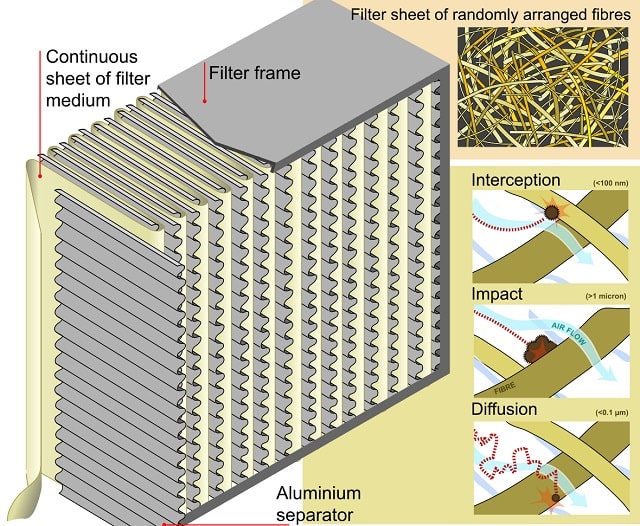
When designing a new home for potential clients, it's crucial to factor in a home or office air filtration system. Air filters reduce allergens, dust, bacteria, viruses, odors, mold, smoke, chemicals, and other airborne pollutants from indoor air that could contaminate its human and animal inhabitants. The importance of whole-home and office air filtration systems has made them a deciding factor in property plans.
How Do Air Filtration Systems Work?
An air filtration system uses a system of internal fans to pull air in your home or office through a series of filters to remove harmful airborne particles. First, the pre-filter is responsible for trapping large particles, such as hair and dust. Then the HEPA filter captures smaller particles like allergens and mold; lastly, the carbon filter captures odors, chemicals, and smoke. The air filtration system ensures that the air that blows through your air vent is clean and free of allergens like pollen, dust, smoke, and pet dander.
What are the Benefits of an Air Filtration System? Air filtration systems improve the respiratory health of everyone, not just those who have allergies or respiratory illnesses like asthma and hay fever. People who were once in good health can develop health problems when they breathe polluted indoor air. Benefits of a a house or office air filtration system include:
- Clean, healthy indoor air
- Reduction in bacteria, viruses, and toxins in the homeowner's air
- Homeowners don't get sick as often, lowering health costs
- Indoor comfort for those who have asthma, allergies or other respiratory problems
- Less dust in the home
- Better-smelling air
- Greater resale value of the home
Whole-home air filtration systems are more cost-effective and convenient for maintaining clean air throughout the entire home. They are the best option for frg eliminating pollutants, dust, and odors from indoor air.
Why Should You Add a Home Air Filtration System to Your Floor Plan?
According to the U.S. Environmental Protection Agency, the long-term effects of poor indoor air quality include “respiratory diseases, heart disease, and cancer, [and] can be severely debilitating or fatal.”
As a home builder, it becomes your responsibility to include a home air filtration system to your floor plan. As homes become more energy-efficient, indoor air quality is becoming a concern. Indoor and outdoor air are constantly mixing as it flows through small cracks and openings in the home. Once inside the home, the constant recycling of air will trap in all sorts of pollutants, including dust, tobacco smoke, pet dander, viruses, bacteria, and mold.
Adding a home air filtration system with an effective HEPA filter can remove up to 99% of airborne particles, helping to control and reduce dust in the home effectively. Global climate change has also led to worsening air quality, not just outside but indoors as well. Poor air quality, whether outdoors or indoors, can negatively affect our respiratory and cardiovascular systems. With climate change, the shift in weather patterns have influenced the levels of fine particles in the air which can infiltrate into your home or offices and do significant danger.
Improve Air Quality Immediately
Also, the increase in CO2 levels outside promotes plant growth that releases airborne allergens. Help homeowners breathe easier and increase the resale value of the home by adding an air filtration system to your house plans. It's the fiscally fit thing to do for your health and your wealth and the best thing for your budget if you run a bootstrapped business.
